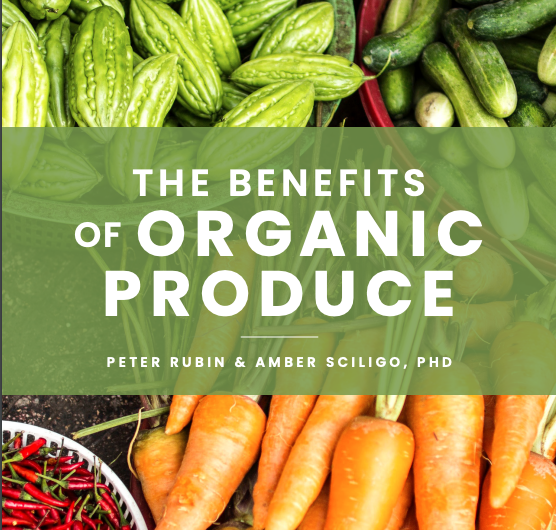Discover the Benefits of Organic Produce
In an era in which health, sustainability, and quality are paramount, choosing organic produce has never been more crucial. Our comprehensive report covers the benefits of organic fruits and vegetables, providing valuable insights backed by robust research and compelling statistics. Whether you're a dedicated advocate for organic living or just beginning to explore its advantages, this report is your essential guide to understanding how organic produce can enhance your health, support the environment, and benefit farming communities.
Healthier and Tastier Produce
Organic produce offers significant health benefits due to its higher nutrient content. For instance, organic apples contain up to 66% more flavonols and 31% more phenolic acids compared to conventional apples. Similarly, organic oranges have 10.7% more vitamin C and 21.4% more essential oils. These increases in beneficial compounds can have a substantial impact on your overall health. Organic spinach, for example, has higher levels of vitamin C and significantly fewer nitrates, which are harmful in large amounts. The superior taste of organic strawberries and lemons, preferred by consumers, is a direct result of higher concentrations of aroma-inducing compounds.
Environmental Benefits
Organic farming practices play a crucial role in protecting the environment. By eliminating the use of toxic synthetic pesticides, organic farming reduces harmful pesticide residues in produce, significantly lowering the risk of pesticide exposure. Studies have shown that switching to an organic diet can drastically decrease pesticide levels in the body within days. Additionally, organic farming promotes greater biodiversity, which enhances pollination services and natural pest control. This results in healthier ecosystems and higher quality crops. Furthermore, organic practices help sequester carbon in the soil, contributing to the reduction of overall greenhouse gas emissions and aiding in the fight against climate change.
Community and Farmer Well-being
Organic farming is not only beneficial for the environment but also for the well-being of farmers and rural communities. By avoiding the use of harmful synthetic agrochemicals, organic farming reduces the health risks associated with these substances, providing safer working conditions for farmers. This leads to improved health outcomes for those who cultivate our food. Additionally, organic farming practices help prevent pesticide drift and chemical contamination, which can have detrimental effects on rural communities. By choosing organic, you are supporting the livelihoods of farmers and fostering healthier, more sustainable communities.
Funding for this report was provided by Organically Grown Company, fierce protectors of the organic movement since 1978. Proud to partner with organic farmers to create a healthier, more sustainable world. www.organicgrown.com



